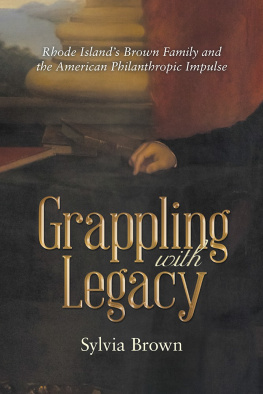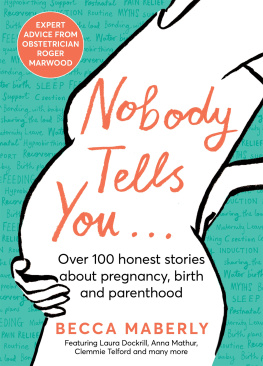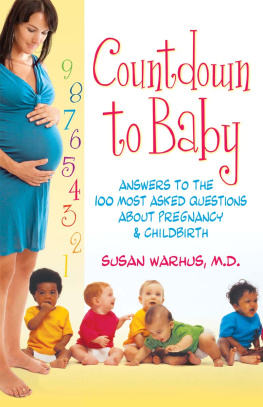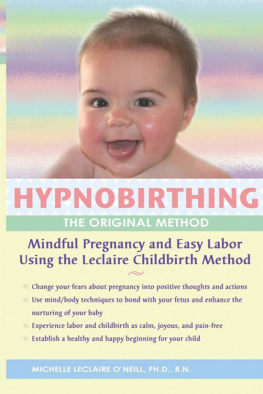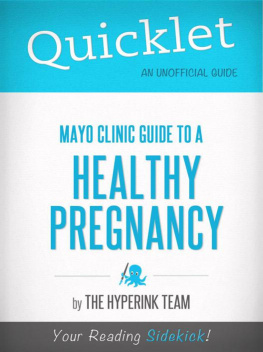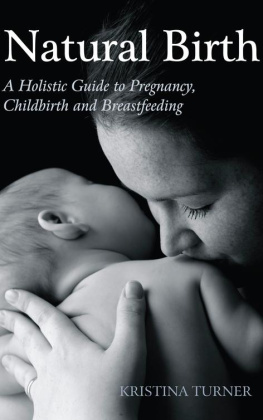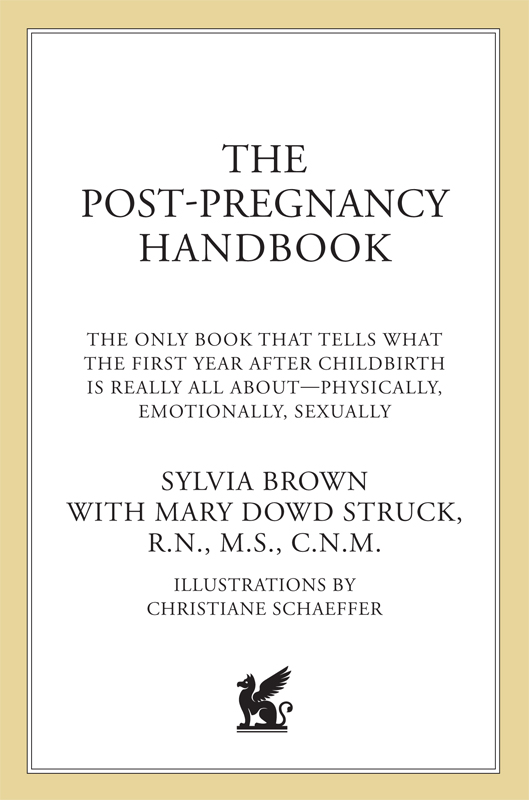Sylvia Brown - The Post-Pregnancy Handbook: The Only Book That Tells What the First Year After Childbirth Is Really All About—-Physically, Emotionally, Sexually
Here you can read online Sylvia Brown - The Post-Pregnancy Handbook: The Only Book That Tells What the First Year After Childbirth Is Really All About—-Physically, Emotionally, Sexually full text of the book (entire story) in english for free. Download pdf and epub, get meaning, cover and reviews about this ebook. year: 2015, publisher: St. Martins Publishing Group, genre: Religion. Description of the work, (preface) as well as reviews are available. Best literature library LitArk.com created for fans of good reading and offers a wide selection of genres:
Romance novel
Science fiction
Adventure
Detective
Science
History
Home and family
Prose
Art
Politics
Computer
Non-fiction
Religion
Business
Children
Humor
Choose a favorite category and find really read worthwhile books. Enjoy immersion in the world of imagination, feel the emotions of the characters or learn something new for yourself, make an fascinating discovery.

- Book:The Post-Pregnancy Handbook: The Only Book That Tells What the First Year After Childbirth Is Really All About—-Physically, Emotionally, Sexually
- Author:
- Publisher:St. Martins Publishing Group
- Genre:
- Year:2015
- Rating:3 / 5
- Favourites:Add to favourites
- Your mark:
The Post-Pregnancy Handbook: The Only Book That Tells What the First Year After Childbirth Is Really All About—-Physically, Emotionally, Sexually: summary, description and annotation
We offer to read an annotation, description, summary or preface (depends on what the author of the book "The Post-Pregnancy Handbook: The Only Book That Tells What the First Year After Childbirth Is Really All About—-Physically, Emotionally, Sexually" wrote himself). If you haven't found the necessary information about the book — write in the comments, we will try to find it.
While a number of books exist which deal with various aspects of the postnatal experience - breastfeeding, exercise, motherhood, post-partum depression - this is the first complete source of information on what a woman experiences both physically and emotionally in the days, weeks and months after childbirth. It is also the only book in its field which balances medical advice with practical tips and numerous references to alternative remedies. From Sylvia Brown, a mother, and Mary Dowd Struck, RN,MS,CNM, a nurse/midwife, comes The Post-Pregnancy Handbook, a wonderfully comprehensive, honest self-help guide which every new (and repeat) mother should keep by her bedside. Brown and Struck give detailed guidance on:
The First Few Days
- alleviating discomfort from the after-effects of labor or a ceasarian
- making the hospital stay more pleasant
- coping with possible medical complications
The First Few Weeks
- organizing home life with a new baby
- surviving fatigue
- breastfeeding successfully
- managing older siblings, parents and friends
- introducing a new dimension to the couple (returning to sex after childbirth)
- navigating the new mothers dietary needs
- identifying and overcoming a range of emotional difficulties from baby blues to severe postnatal depression
- dealing with stress, guilt and that elusive maternal instinct
The First Year
- achieving a complete physical recovery: how to get back into shape from the inside out
- restoring strength and tone to the pelvic floor
- countering the legacies of pregnancy: problems with hair, skin, and varicose veins
A thorough, straightforward guide to helping the new mother achieve an effective and harmonious recovery.
Sylvia Brown: author's other books
Who wrote The Post-Pregnancy Handbook: The Only Book That Tells What the First Year After Childbirth Is Really All About—-Physically, Emotionally, Sexually? Find out the surname, the name of the author of the book and a list of all author's works by series.

